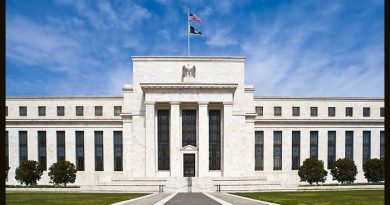Dollar regroups after Powell push
SINGAPORE (Reuters) – The dollar retreated from recent peaks on Thursday, following further reassurance from Federal Reserve chair Jerome Powell that he was in no rush to tighten policy, though losses were kept in check by investor nerves ahead of Chinese growth data.
Powell said overnight that high inflation seemed linked to reopening, that it would be a mistake to act prematurely to tame it and that tapering bond buying was “still a ways off”.
The remarks pulled the dollar back from a three-month high against the euro and from a one-week high on the yen, though it soon found a footing in the Asia session as traders nervously awaited Chinese data to see whether it indicated a slowdown.
China unexpectedly loosened monetary policy last week, driving speculation that quarterly growth figures due at 0200 GMT might be soft, even though trade data beat forecasts on Tuesday.
“The market is still on an uncertain path,” said National Australia Bank strategist Rodrigo Catril, with investors neither entirely convinced Powell can keep policy super easy nor sure about the trajectory of recovery as the coronavirus mutates.
“The dynamics of different currencies seem to be being overwhelmed by the dollar dynamic,” he said, which is in turn being driven by data and by the spread of the delta variant.
“The big experiment is really the full reopening in the UK,” he added. “If that could be successful, we think it’s going to be a huge factor in terms of confidence and pricing a broader and sustained recovery,” which could weaken the dollar.
So far, even sharp contrasts in tone between Powell and other central banks that are charting faster courses away from super-easy policy have not kicked major currencies out of recent ranges against the greenback.
The New Zealand dollar, which enjoyed its best session in nearly five months overnight, climbed only to its strongest in a week and sits below its 200-day moving average – even though the central bank said it would end bond buying next week.
In morning trade the kiwi had pulled back slightly and traded at $0.7023. The Australian dollar was marginally softer at $0.7474. The yen held overnight gains to trade at 109.88 per dollar, a one-week high.
Sterling slipped below its 20-day moving average to $1.3840.
The Chinese yuan eased from an overnight one-month high and was last at 6.4613 per dollar in offshore trade.
Economists polled by Reuters expect quarterly growth in China of 1.2% and for year-on-year growth to be at 8.1%.
Source: Read Full Article


